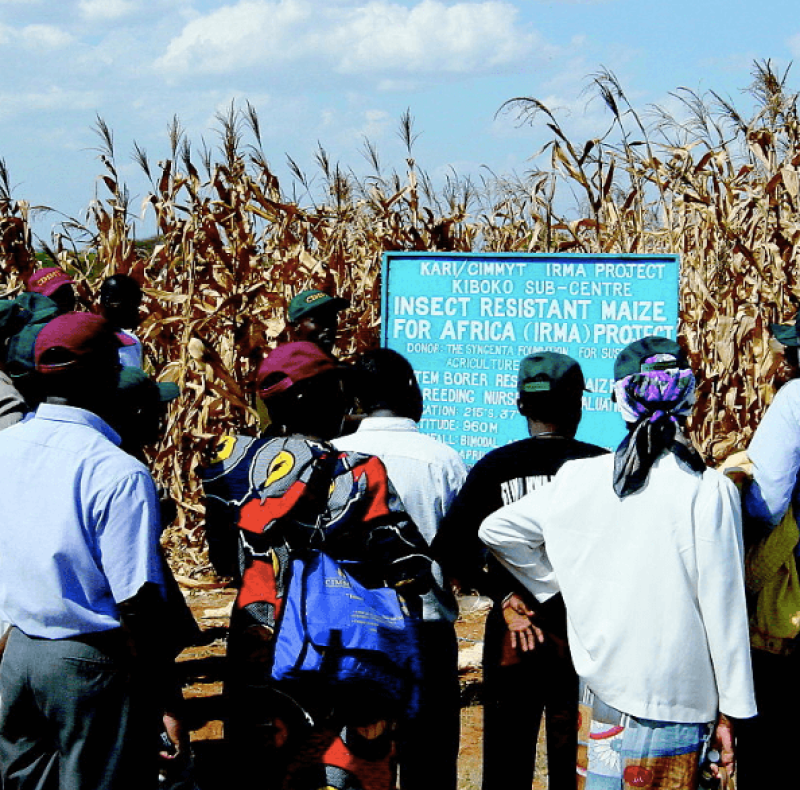…In the last 18 months, unusually high temperatures and a brutal El Niño have punished many parts of Africa with drought…
It is in this context that nations like Tanzania are rethinking their GM food crops positions. Maize is the main food source for one out of every four Africans, and droughts hit it hard. … At present only South Africa, Egypt, Burkina Faso and Sudan grow GM crops commercially, but that is likely to change in the next few years.
. . . .
According to the FAO, 32 percent of Tanzanians are currently undernourished. And in a country where 80 percent of the population are subsistence farmers, that implies that millions of people are not able to grow enough food to feed themselves.
. . . .
…[W]ith a royalty-free licensing agreement in place, the drought-resistant corn, like all [Water Efficient Maize for Africa] maize hybrids, was developed specifically to suit local conditions… it’s this convergence of local GM solutions coming online at a time when climate change impacts are really starting to be felt … that has tilted the balance of power away from the luxury of caution and toward the urgency of feeding … millions of people now.
The GLP aggregated and excerpted this blog/article to reflect the diversity of news, opinion and analysis. Read full, original post: Facing Climate Change, Tanzania Can’t Afford to Fear GM Crops































